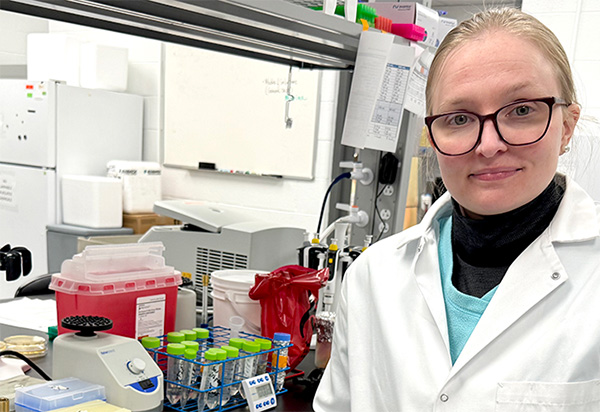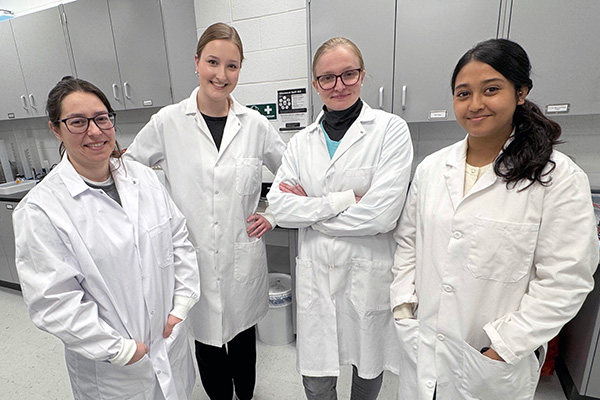

A new area of research has opened up and Dr. Britta Rued, assistant professor of veterinary microbiology and preventive medicine, has been awarded a three-year, $450,000 grant from the Roy J. Carver Charitable Trust to further her study in this area.
“It was recently discovered that a class of bacteria with a vital role in human health produces a large family of chemicals that do several things,” Rued said.
RaS-RiPPs are produced by a type of bacteria called streptococci. There are 16 different types of RaS-RiPPs, and each are different from another. RaS-RiPPs can interfere with other bacteria they encounter.
Certain RaS-RiPPs can prevent the growth of non-beneficial bacteria and stop them from growing on surfaces. In some cases, streptococci can be beneficial to humans, establishing healthy bacterial communities’ humans need for good health.
In other instances, streptococci can cause infections that can harm a person’s health.
What researchers don’t know is how often streptococci make RaS-RiPPs, even less about the signals that cause these to be produced, or if they can be harmful or helpful to humans.
“We want to understand how and when these RaS-RiPPs are made and what signals from the human host could cause these systems to turn on,” Rued said.
In her proposed research Rued will seek to determine what host and other environmental signals cause RaS-RiPPs to be made. Her research group will also look at why and how often streptococci make RaS-RIPPs.
While this avenue of research has only recently been opened, Rued has been working on streptococci since she was in graduate school at Indiana University. She has also collaborated with a research group at Princeton University on the subject.
And while both teams have made progress there is much more to be learned.
“We’ve characterized the regulation of one RaS-RIPP systems in one species, but there’s another 15 different classes that we really haven’t scratched more than the surface for as far as regulation goes,” Rued said. “We’re hopeful this research might also prove useful as therapeutics in terms of if they are associated with disease or health.
“We might find that one RaS-RiPP might correlate with a certain chronic or acute disease state or is associated with their absence. That would be really very interesting, and valuable from understanding their role in human health and could directly play a role as targeted therapeutics.”
The Roy J. Carver Charitable Trust of Muscatine, Iowa, is one of the largest private philanthropic foundations in the state of Iowa, with assets of $350 million and annual grant distributions of $16 million. It was created through the will of Roy J. Carver, a Muscatine industrialist and philanthropist, who died in 1981.
The Carver Trust made its gift commitment through the Iowa State University Foundation. The foundation is a private, nonprofit organization committed to securing and managing gifts that benefit Iowa State University.
February 2025
